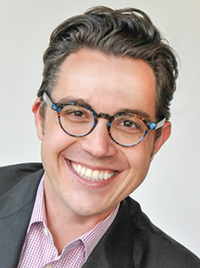Another month, another scandal brewing at Wells Fargo.
Just when the beleaguered bank was beginning to move past the shadows of its fraudulent account scandal exposed in 2016, it's now being accused of charging thousands of customers for auto insurance they didn't need.
Regardless of who at the bank gets the finger of blame pointed at them, scandals like this ultimately are borne from dysfunctional work cultures and recruiting practices that typically don't place enough focus on candidate qualities such as ethics.
Which begs the questions: How does your credit union incorporate ethics into its recruiting practices? Beyond simply looking for tellers, loan officers, or even VPs who are experts in their fields, are you looking for candidates who have the unique pro-social philosophy that credit unions are known for?
Millennials and Pro-social
Recruiting Mix Perfectly
According to a study published by Forbes earlier this year, 64% of millennials said it was a priority for them to make the world a better place through their work. While it's no question they're also looking to make a decent salary, the strength of millennials' pro-social work philosophy is unique compared to other generations.
What a great opportunity for credit unions to align this generation's work goals with the pro-social philosophy that is ingrained in our movement. As your credit union advertises new roles via LinkedIn or other job sites, what types of key words and phrases are you using? Do you focus more on the technical skill needed for a candidate to be successful, and do you supplement that by highlighting the “people helping people” message of our industry?
When you communicate your credit union's pro-social focus, you'll attract applicants who are drawn to that focus. And it's not just about hiring tellers who can smile and greet a member by name. As credit unions move toward more online and mobile services, it becomes increasingly important for back-office staff to have pro-social skills since they oversee much of your credit union's interactions with your members.
Are you looking for IT developers and operations staff who care about your credit union's social mission as much as they care about keeping their professional certifications current? You should be. If you're not, you may wind up with employees who don't see your credit union as being any different than the big banks.
Effective Recruitment Begins in the Marketing Department

Oftentimes a potential employee's first impression of your credit union doesn't come from a job posting or recruiter's pitch. These candidates are the same consumers who encounter your marketing messages and are paying attention to your credit union's corporate social efforts.
Before a job applicant ever considers you for work, they will want to become familiar with your company. What sets your credit union apart? Even more broadly, what sets the credit union movement apart from other financial competitors?
Unfortunately, we have a long way to go before millennials understand our philosophical differences from banks. In a Google survey fielded in 2015, 49% of millennials aged 18 to 24 had no idea what made credit unions different from banks. And perhaps even more depressing was that 36% had no idea what a credit union is.
How can we expect to find employees and leaders who will support the credit union movement's pro-social philosophy when we're not effective at communicating our overall consumer advantage?
Before your credit union considers beefing up its pro-social recruitment messaging and strategies, you need to understand how your members (and more importantly, non-members) perceive you. Do they see you as just another financial institution that happens to have lower loan rates, or do they truly understand what your credit union stands for philosophically?
You can't expect to have employees who understand your philosophy if your members don't.
Consider an Industry-Wide Career Path
The days of employee (or employer) loyalty are long gone. Forrester Research has predicted that the youngest employees today will have between 12 and 15 jobs in their lifetime.
Many credit unions have stories of new hires who on orientation day are already asking what their next position will be and how soon they'll have it. While this shows tremendous drive on the part of the employee, it puts many credit unions in a pinch if their organizational chart doesn't offer quick job advancement opportunities.
But the credit union movement presents a unique opportunity that banks can't offer – even though an employee may start at a small credit union with few advancement opportunities, our industry has a history of welcoming, and sometimes encouraging, employees to move from one credit union to another in a truly collaborative fashion.
What if part of a credit union's recruitment pitch was, “Do well here, and you could move up to a leadership role here or at another credit union.” I can't imagine Wells Fargo ever saying that working for Chase is a welcomed next step for a new hire. But a message like this might help credit unions collectively attract top talent that would never give us a second thought otherwise.
We're Waging a War for Talent
Strategies like pro-social recruiting and industry-wide career paths may be ways to maintain or regain the upper hand in hiring. And they're just two ideas being researched in Filene's newest center of excellence focused on the War for Talent. Sekou Bermiss, Filene's research fellow from the University of Texas at Austin, is committed to helping credit unions win this war.
Sekou and other leaders from academia will be discussing cutting-edge ways credit unions can recruit and retain tomorrow's leaders in Austin, Texas on Sept. 14 during America's Got Talent: Attracting It is the Challenge, Filene's first research colloquium on the topic.
While we face hiring challenges, competitors like Wells Fargo are facing their own very public challenges rooted in unethical employee behavior. Now is the time for credit unions to set themselves apart as the employers of choice for those who don't want to be associated with scandal.

Andrew Downin is the Managing Director, Research at Filene Research Institute. He can be reached at 608-661-3746 or [email protected].
© Touchpoint Markets, All Rights Reserved. Request academic re-use from www.copyright.com. All other uses, submit a request to [email protected]. For more inforrmation visit Asset & Logo Licensing.






